Category Archives: Surveys and Opinion Polls
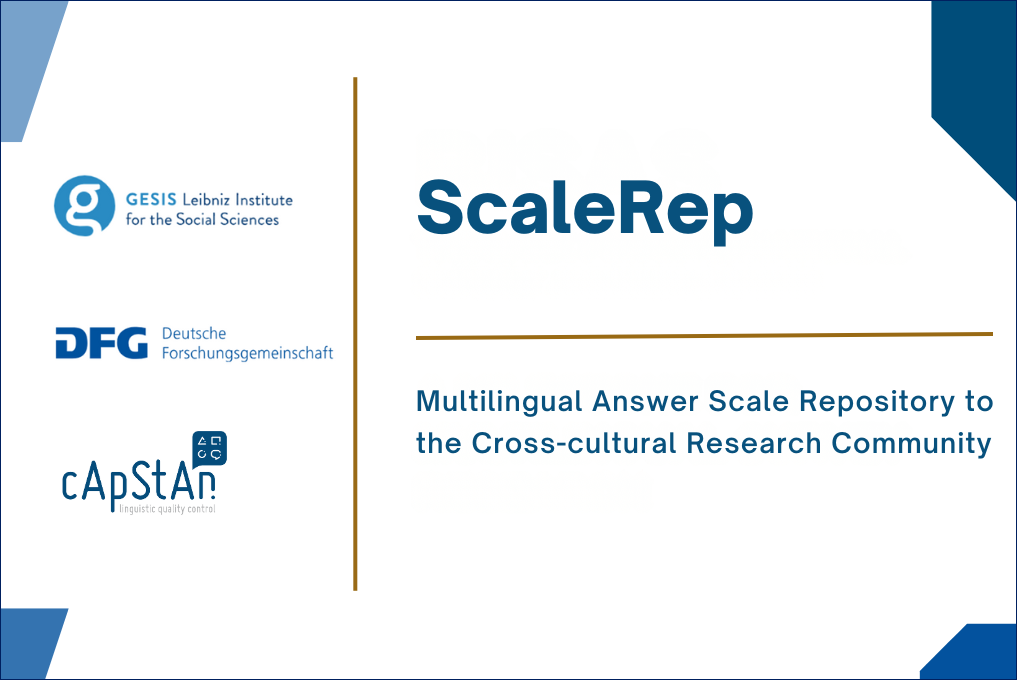
ScaleRep – Multilingual Answer Scale Repository to the Cross-cultural Research Community: A Milestone for Multilingual Survey Research
We are thrilled to announce that funding has officially been secured for the Multilingual Answer Scale Repository to the Cross-cultural Research Community (ScaleRep), a groundbreaking initiative born from a collaborative effort between GESIS – Leibniz Institute for the Social Sciences in Germany and cApStAn Linguistic Quality Control. This achievement is made possible thanks to the generous support of the Deutsche …
Read More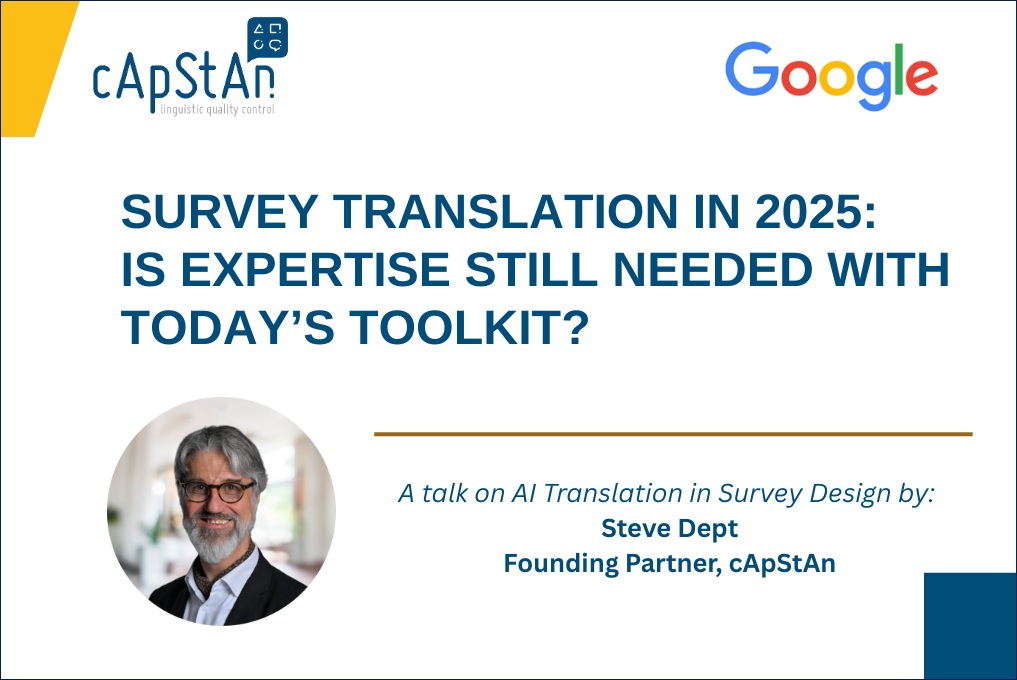
Survey Translation in 2025: is expertise still needed with today’s toolkit?
We’re thrilled to share that cApStAn’s founder Steve Dept was invited to speak at Google’s internal Survey Conference last week, where he shared insights on the latest trends and best practices in survey translations. Abstract from the session: The blueprint for high-quality questionnaire translations using sophisticated workflows was developed at a time when data collection …
“Survey Translation in 2025: is expertise still needed with today’s toolkit?”
Read More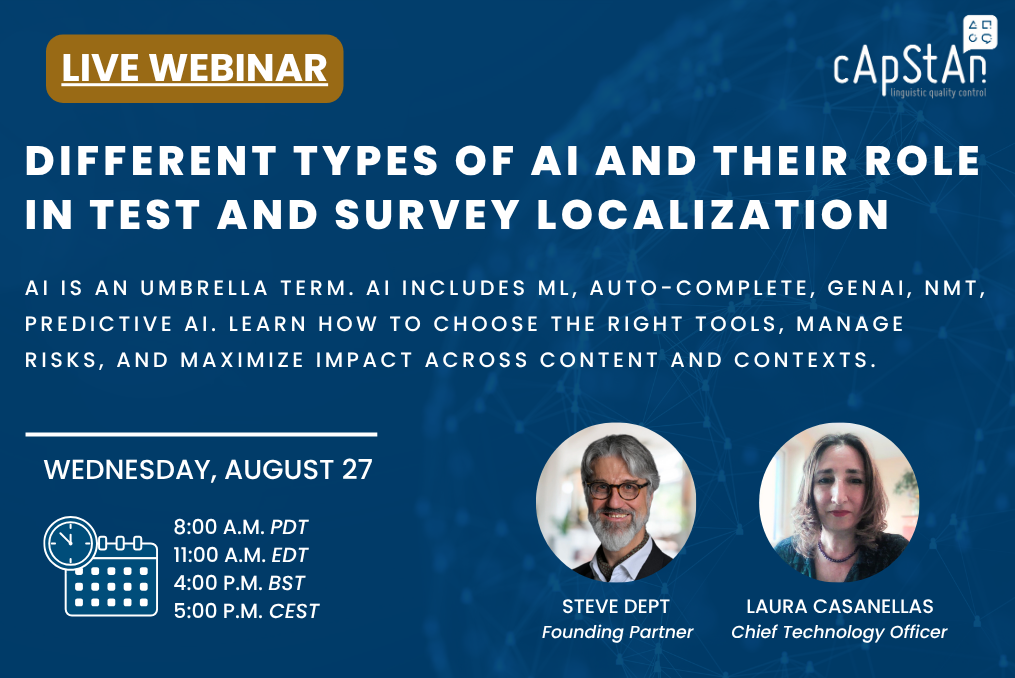
Leveraging Translation Technology with Discernment | The Keys to Smart Localisation unveils on August 27, 2025
Translation and localisation has traditionally been a cost centre, and the work performed by professional translators was mostly paid by word, by line, by page. Today, this model has become meaningless: translating half a million words or generating 100 pages directly in a foreign language can be done faster and cheaper than crafting two or three …
Read More
Setting up a robust Linguistic Quality Assurance process for your tests and assessments on a low budget
Andrea Ferrari, cApStAn co-founder You are going to administer a test or questionnaire in multiple countries, cultures, and languages. We don’t need to convince you that the reliable validation of translated data collection instruments requires a robust Linguistic Quality Assurance (LQA) design. A design that focuses on equivalence, comparability as well as appropriateness in each …
Read More
Referring to the Total Survey Error (TSE) framework when designing and monitoring translation workflows for questionnaires
Advances in survey methodology research have brought advantages to data reliability and validity, especially in the 3MC (Multinational, Multiregional, and Multicultural Contexts) surveys. The “Total Survey Error” (TSE) is the example of a paradigm that provided the conceptual framework for optimizing surveys by maximizing data quality within budgetary constraints. This framework links the different steps …
Read More
Putting into perspective the rearview mirrow, the sonar and the periscope | Steve Dept, Founding Partner
There is no shortage of C-Suite executives and founders who prompt generative AI to provide an optimistic outlook of the coming year. This exercise is typically associated with humble bragging (a frequent oxymoron) about achievements. So, is it anachronic to use a plain rearview mirror for hindsight, an old-fashioned sonar to sound depth, and a …
Read More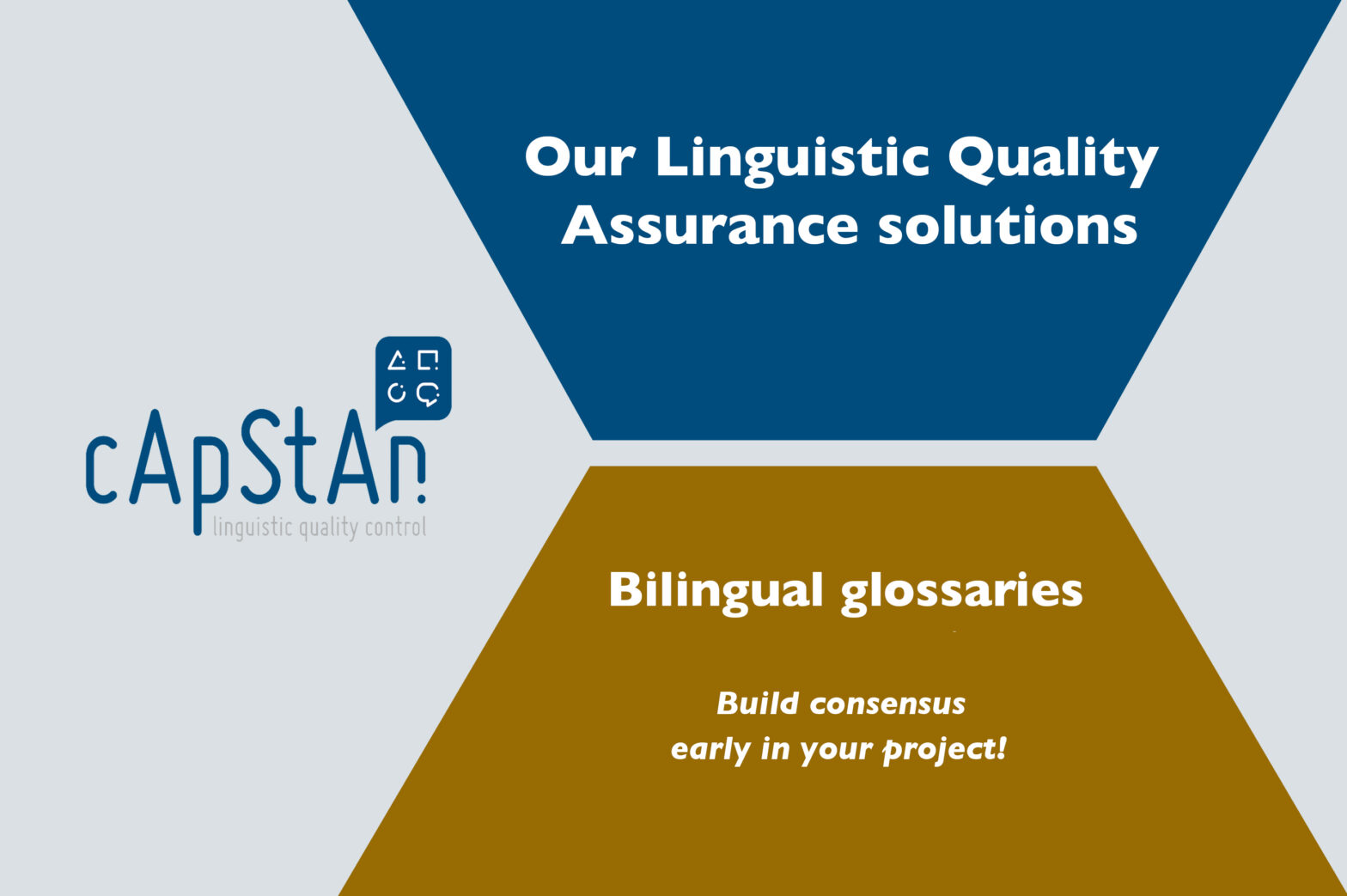
The role of glossaries in ensuring the validity and equivalence of tests/surveys across multiple languages
At cApStAn we strongly believe in the need to perform more “upstream” quality assurance work to reduce the need for “downstream” corrective action. In cApStAn’s modular approach, the creation of glossaries comes under module B, related to the preparation of a translation project. A glossary consists of a collection of terms that need to be …
Read More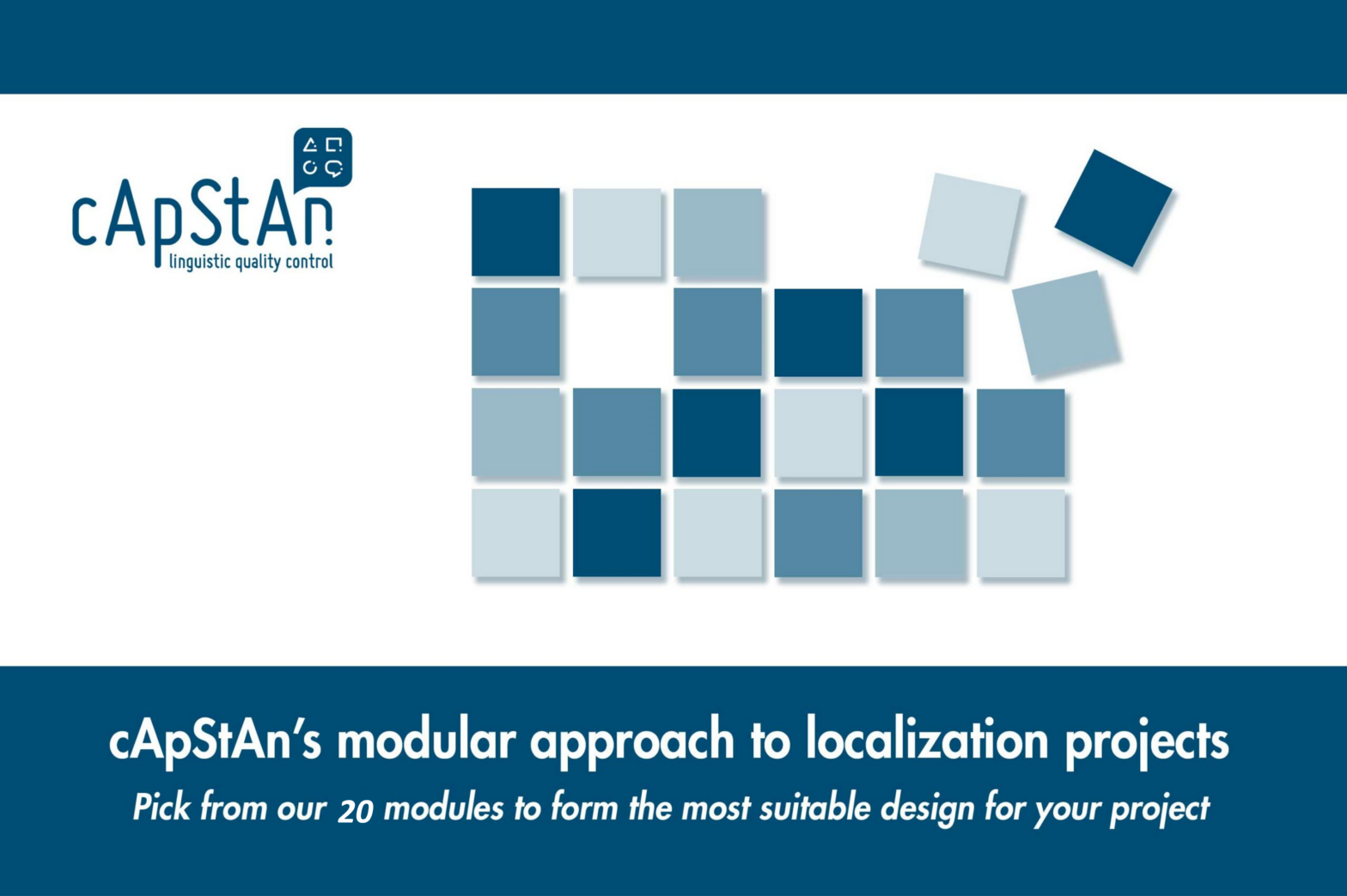
cApStAn’s Modular Approach to a Test or Survey Localisation Project
cApStAn organises its linguistic services in 20 modules grouped into 4 moments of a localisation project. Depending on your requirements, we combine different modules, like building blocks, to form the most suitable design for your project. Fill out the form to receive the document now
Read More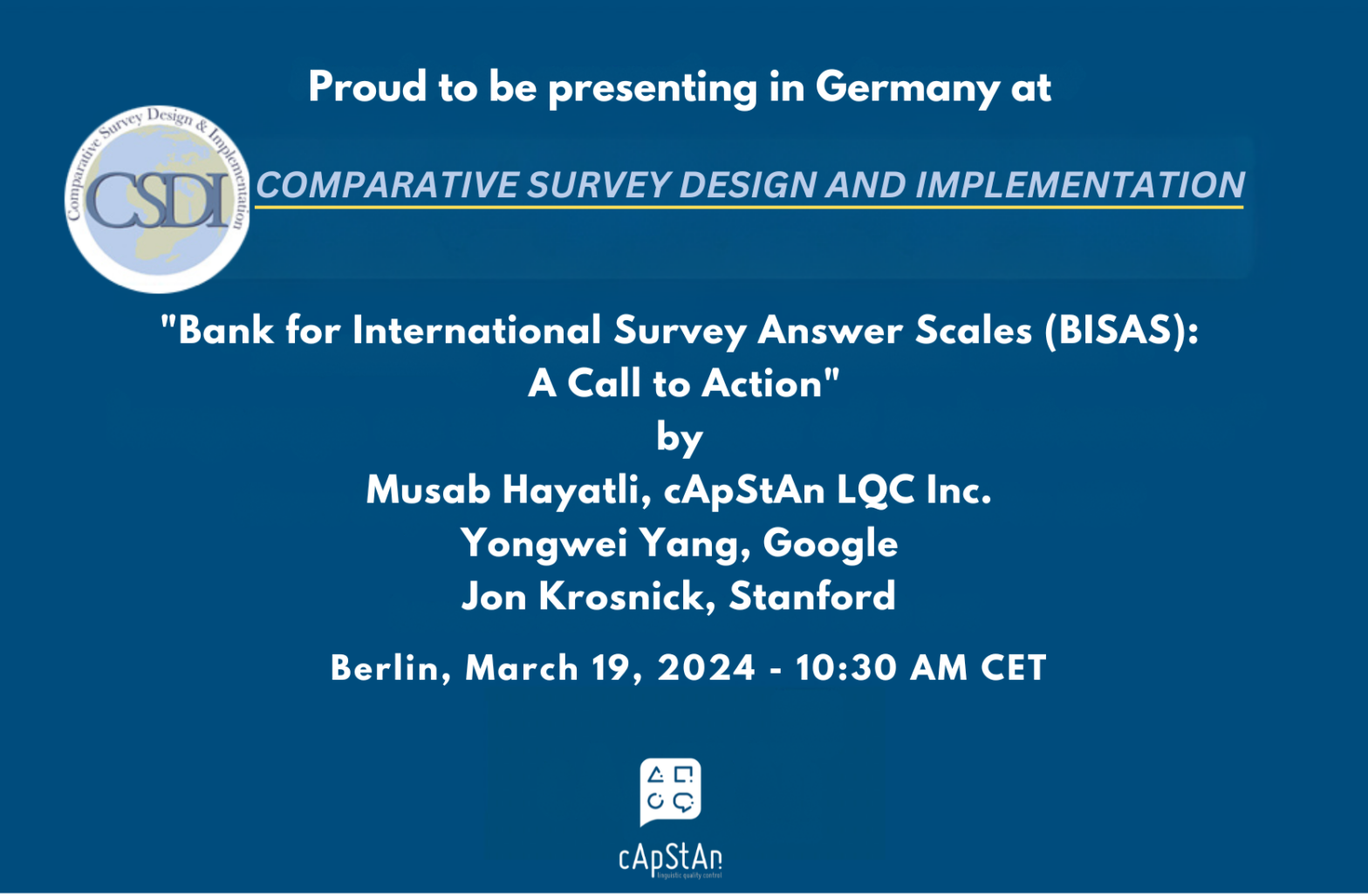
CSDI Workshop in Berlin | Bank for International Survey Answer Scales (BISAS): A Call to Action
The CSDI (Comparative Survey Design and Implementation) Workshop will be held on March 18th – 20th at the SHARE BERLIN Institute GmbH in Berlin, Germany. In a session organised by Dorothee Behr from GESIS and focusing on methods, innovations and new challenges in questionnaire translation, Musab Hayatli, cApStAn Inc. in collaboration with Yongwei Yang from …
“CSDI Workshop in Berlin | Bank for International Survey Answer Scales (BISAS): A Call to Action”
Read More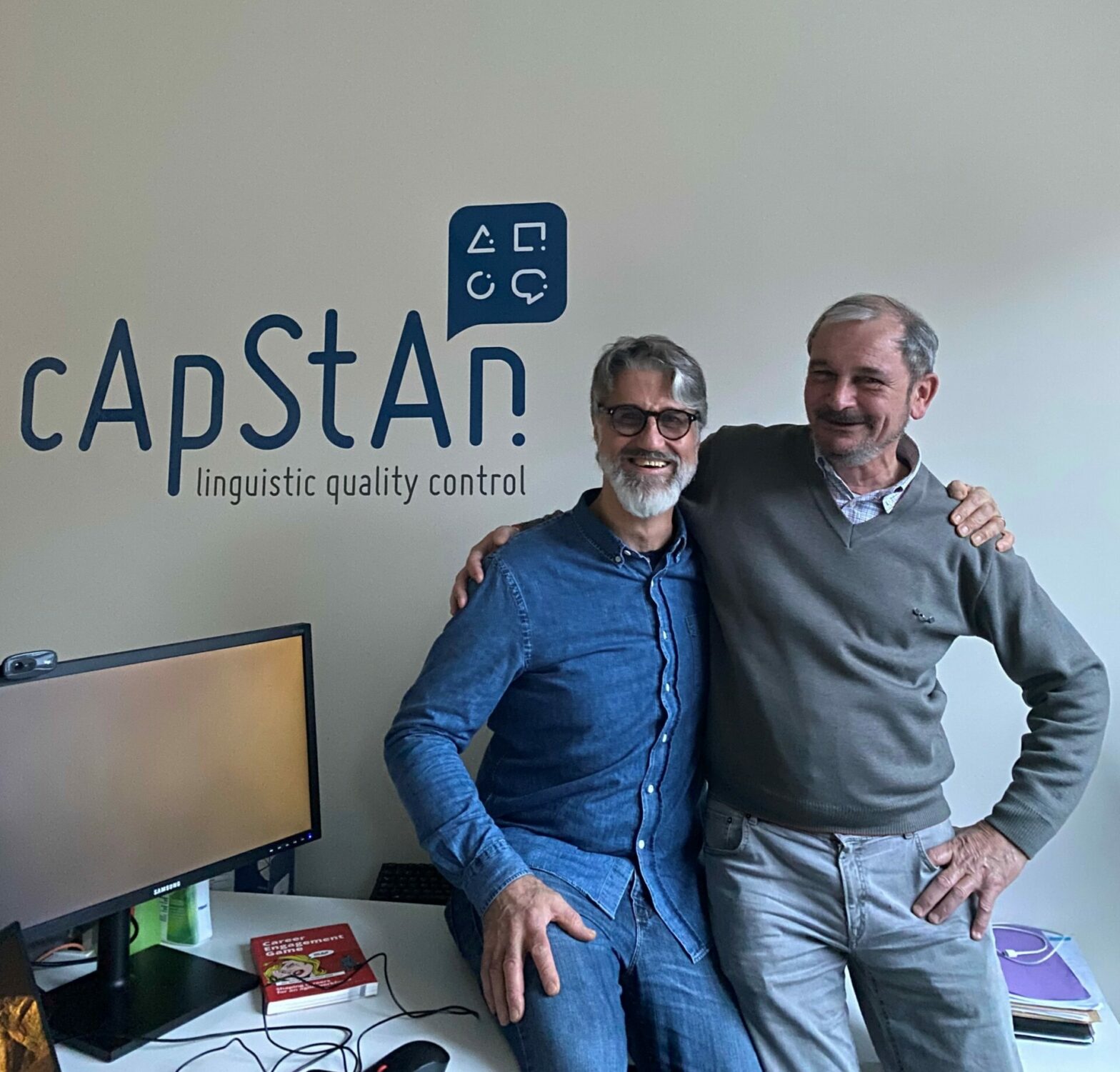
“cApStAn at a scale”, Jan Denys, CEO, and Steve Dept, Founding Partner
No comparative surveys without comparable data Twenty-four years ago, cApStAn started developing, testing, fine-tuning and implementing methods to ensure comparability between different language versions of tests and questionnaires. That was our core activity and it still is. Tests and questionnaires are measurement instruments. They measure knowledge, skills, attitudes, trends, or opinions. They link data points …
““cApStAn at a scale”, Jan Denys, CEO, and Steve Dept, Founding Partner”
Read More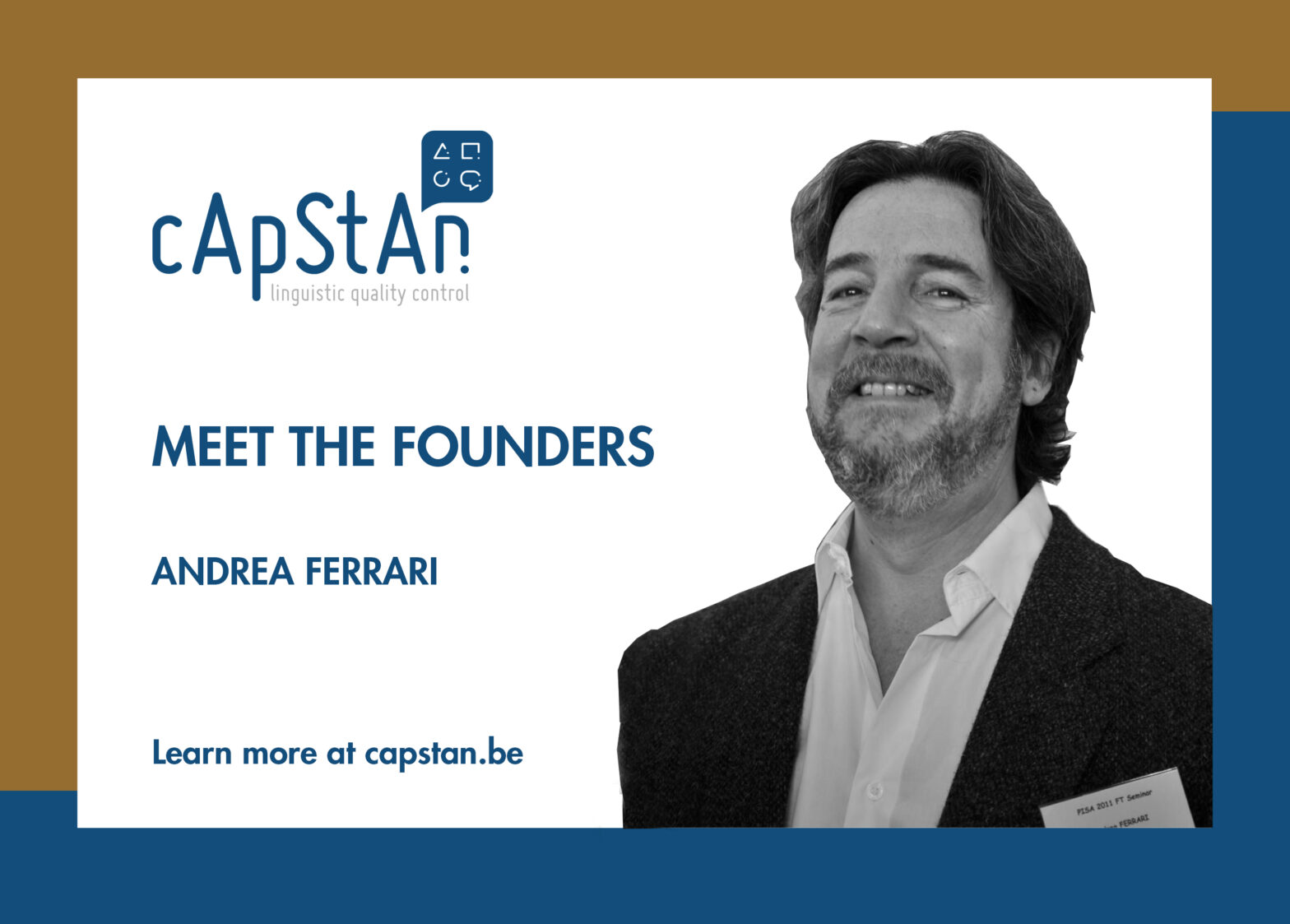
“Navigating the Seas of Linguistic Quality: A Chronicle of cApStAn’s 22-Year Odyssey”
I am Andrea Ferrari, an Italian national, born in Peru. I was exposed to a multicultural environment from early on, living and studying in Canada, Italy, Australia, Greece, and Belgium. I earned a degree in Business Engineering from the Solvay Business School, Brussels, did a stint with a major multinational (Procter & Gamble) but switched …
““Navigating the Seas of Linguistic Quality: A Chronicle of cApStAn’s 22-Year Odyssey” “
Read More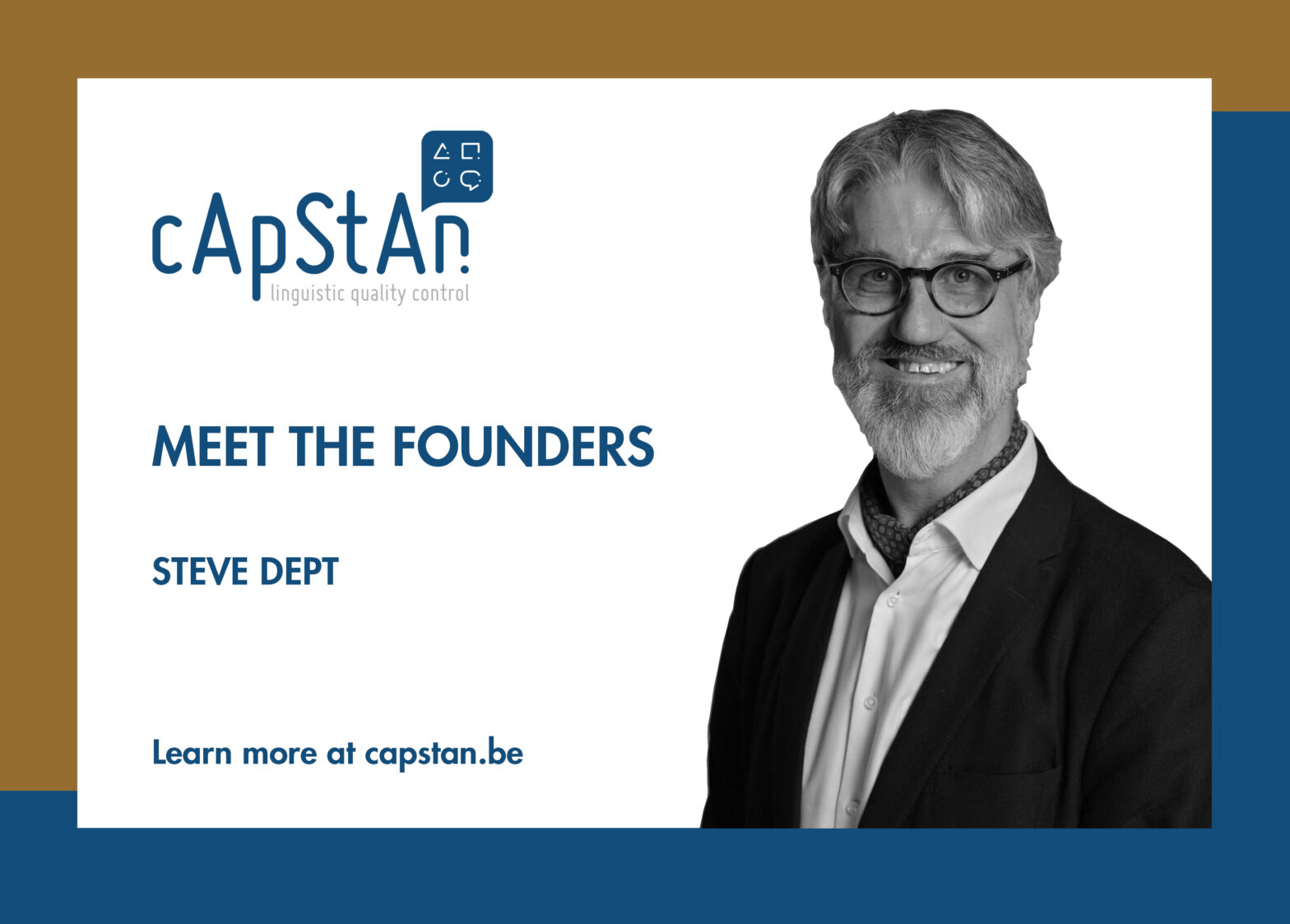
“What it takes to build a boutique language solutions provider: a cApStAn founder nails it”
Founders of boutique language solution providers are often overrated and cApStAn is a case in point in this regard. I am Steve Dept, a linguist by training—though not a translator—and a polyglot, initially because my parents travelled a lot: before the end of secondary school, I had attended 14 schools in 4 different languages. While attending German …
““What it takes to build a boutique language solutions provider: a cApStAn founder nails it””
Read More